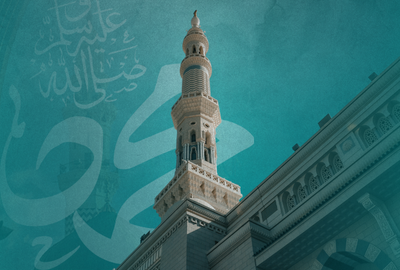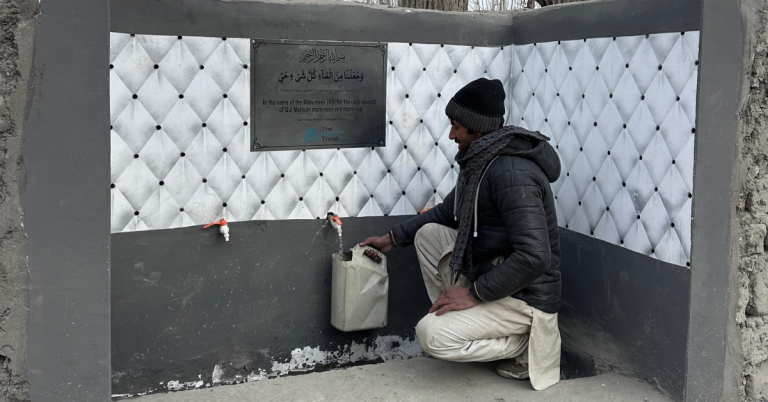What Do the Titles of Sayyida Fatima (sa) Teach Us?
Sayyida Fatima’s (sa) titles are more than honorifics.
They are reflections of her light, her purity, her strength, and her unmatched place in the heart of Islam.
“Indeed, Allah only desires to remove impurity from you, O People of the Household, and to purify you completely.” (Quran 33:33)
From Al-Zahra (The Radiant) to Al-Batul (The Pure) and Umm Abiha (Mother of Her Father), each title reveals something profound about her soul.
They offer us timeless lessons in how to live with devotion, dignity, and resilience.
1. Al-Zahra (The Radiant)
The title al-Zahra means The Radiant.
It was given to Sayyida Fatima (sa) because of the spiritual light and divine presence that surrounded her.
But her radiance wasn’t just physical. It was spiritual.
She was a source of illumination for those around her, guiding the believers with her piety, her character, and her deep connection to Allah (swt).
This teaches us today that even in dark times, you can be a source of light.
Your faith, no matter how quiet, has the power to uplift others, just like hers did.
2. Al-Batul (The Pure)
This title connects Fatima (sa) to her unmatched spiritual purity.
Al-Batul refers to one who is detached from worldly distractions and deeply connected to Allah (swt).
When asked about why she was given this title, Ahmed bin Yahya is reported to have explained:
“She was incomparable in her chastity, virtues, religiousness, and lineage. It was also said that she was called so because she had devoted herself to Allah the Almighty and turned her back to the worldly life.” (Lisan al-Arab, vol.16 p.43, an-Nihayah fee Gharib al-Hadith, vol. 1 p.94.)
She was known for her worship, her humility, and her rejection of materialism.
In a world that often values image over substance, Fatima (sa) reminds us that purity of intention, sincerity in worship, and inner strength are what truly matter.
3. Umm Abiha (Mother of Her Father)
Perhaps one of the most beautiful titles Fatima (sa) held was Umm Abiha, Mother of Her Father.
When others mocked or abandoned him, she stood by him with a heart full of love and devotion.
After her mother, Lady Khadija (sa), passed away, Fatima (sa) filled that void; comforting her father, defending him, and becoming his pillar of peace at home.
Love is not just shown in words. It’s lived in quiet acts of support, especially when others are suffering.
Fatima (sa) teaches us how to care for others with deep empathy and selflessness.
She reminds us that compassion is the source of all goodness, something we witness at The Zahra Trust every single day.
How Do Her Titles Still Speak to Us Today?
Each of these names tells a story. Not just about who she was, but about who we are called to be.
Al-Zahra teaches us to bring light into dark places, especially during the cold winter months.
Al-Batul teaches us to hold onto purity in a world of distractions.
Umm Abiha teaches us that real strength is found in compassion, and in giving to all those who may need our help.
At The Zahra Trust, her example inspires every act of service.
Just as she upheld justice and cared for the vulnerable, we strive to continue that mission: supporting widows, orphans, and families with compassion and dignity.
Thanks to your generosity, her legacy lives on. Not just in words, but in action.
FAQ
Sayyida Fatima (sa) is honoured with many titles, but three of the most well-known are:
Al-Zahra (The Radiant)
Al-Batul (The Pure)
Umm Abiha (Mother of Her Father)
Each title reflects a key aspect of her spiritual character and role in Islamic history.
Al-Zahra means The Radiant. It signifies Fatima’s (sa) spiritual light and purity. According to narrations, her presence would shine, especially during prayer, and her inner light continues to guide believers today.
Al-Batul refers to one who is completely detached from worldly desires and devoted solely to Allah (swt). Fatima (sa) was known for her modesty, worship, and detachment from material life, making her a symbol of purity in Islam.
Umm Abiha translates to Mother of Her Father. This unique title highlights the care, support, and emotional strength Fatima (sa) gave to her father, Prophet Muhammad (saww), especially after the passing of Lady Khadija (sa).
The titles of Fatima (sa) teach values like resilience in hardship, spiritual purity, selfless love, and the power of standing for justice. Her legacy continues to inspire Muslims in their personal struggles and acts of service.
The Zahra Trust is guided by the compassion, dignity, and justice exemplified by Sayyida Fatima (sa). By supporting widows, orphans, and vulnerable families, The Zahra Trust upholds her values in every act of service.
Fatima (sa) is revered as the daughter of the Prophet (saww), a devoted mother, and a bold voice for justice. Her life represents the essence of Islamic womanhood: faithful, strong, and spiritually radiant.


 Donate Now
Donate Now
 Donate
Donate









